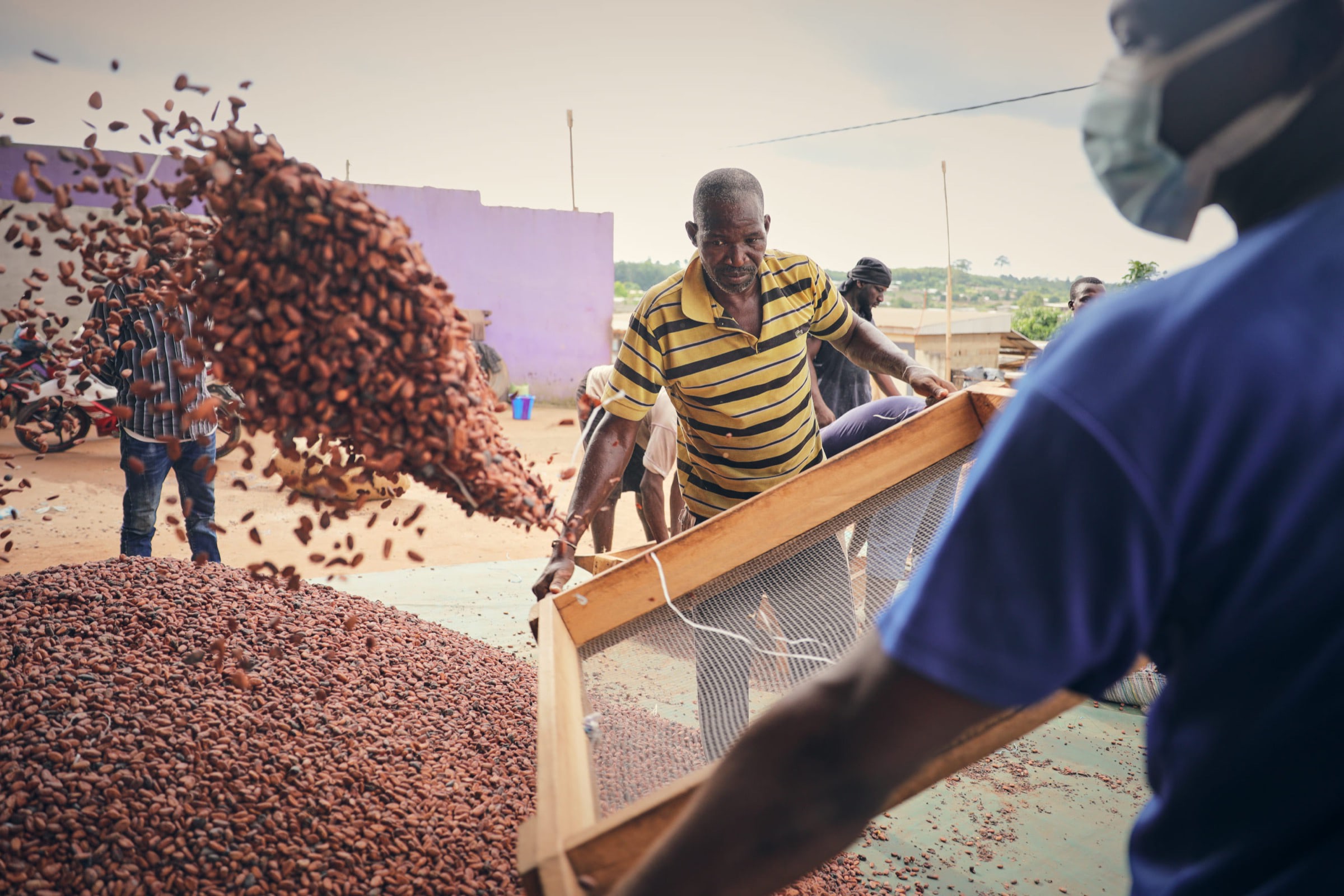Our journey so far
The World Cocoa Foundation was founded. The organisation’s initial purpose was to support research and education programmes related to cocoa agronomy. The WCF spent the next decade building an independent organisation that played a prominent leadership role on behalf of the chocolate and cocoa industry on sustainability issues, especially the issue of child labour.
Implemented programmes through a public-private partnership model. Supported by the Bill & Melinda Gates Foundation and the U.S. Agency for International Development, activities aimed to boost cocoa productivity, raise farmer incomes, and address issues like child labour and deforestation. Focused on West Africa, the Americas, and Southeast Asia.
CocoaAction, launched in 2014 by nine leading chocolate and cocoa companies, was underpinned by a set of principles and actions designed to improve productivity and strengthen cocoa-growing communities in West Africa.
The Cocoa & Forests Initiative, launched in 2017 currently signed by 36 companies, is an ongoing ground-breaking partnership with the governments of Ghana and Côte d’Ivoire to end and reverse deforestation in their cocoa sectors.
WCF launched a new strategy and transformation, focus on convening and collaborative programming. Launch of CFI Phase 2 with a landscape approach.
WCF is an industry organisation whose members represents more than 80% of the cocoa sector. WCF’s vision is to be a catalyst for a thriving and equitable cocoa sector that is collaborating to improve farmer income, reverse deforestation and combat child labour.
